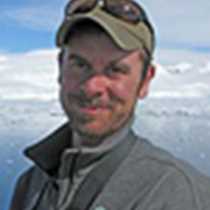Cape Harrison Region, Labrador
Sometimes an early morning glance through the porthole window is all it takes to summarize the conditions ahead. Today’s summary came through load and clear… WET! Despite stiff wind and a steady rain we spent our morning in the Cape Harrison Region of Labrador in comfort with the help of guest Photographer Ira Block, who spoke about his 1978 National Geographic assignment to the North Pole, and guest lecturer Ken Knowles’ introduction to the history and culture of the Labrador / Newfoundland area. Surprisingly enough both lectures prepared us for the day ahead.
Ken’s insight into 19th century European influence on the Inuit and Innu people of the Labrador coast was invaluable as we took short walks around an abandoned cottage hospital on Indian Island. The small, unoccupied structures we saw were remnants of what were the first medical facilities on the Labrador coast. Established by Sir William Grenfell in 1893, these and other similarly small outposts were the first of their kind and offered the aboriginal people of the area their first exposure to western medical attention. In the years following his arrival Grenfell established similar hospital facilities throughout the region with the hopes of providing what the Labrador government at the time would not… basic medical treatment to the areas original inhabitants.
Alternatively, Ira’s slideshow about his time spent in the brutal conditions of the north, while not at all about the Labrador area, inspired enough people to brave the elements awaiting us outside the National Geographic Explorer this afternoon. Despite the driving rain and wet Zodiac cruise to Indian Harbor there was not a complaint amongst us. With local weather being influenced by the cold, southbound Labrador current average annual rainfall in the area can reach 530mm. Northern Labrador also represents a transition zone between Arctic and sub-Arctic climates and is known for its sudden climactic shifts. As was repeatedly mentioned today, a trip to this area would not be complete without weather that accurately portrays the norm. And, as we embraced the norm, one of the day’s most poignant statements was shouted above the sound of the wind: “it’s not the clear perfect days of a trip I tend to remember, but days like these.”




